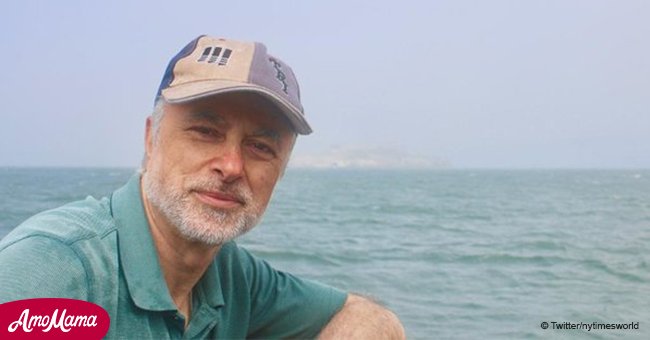
Family of American, 61, missing in Syria, asks Trump for help spurred by withdrawal of US troops
The American therapist from Arlington, Virginia that disappeared in Syria on February 15, 2017, has a family fighting to bring him home and is asking for President Donald Trump’s help.
Majd Kamalmaz went to Damascus to visit family, less than 24 hours after his arrival in the Syrian capital, he goes missing. The last person to have seen him was the taxi driver that was with Majd when he got detained at a government checkpoint.
Soon after his arrest in 2017, Eva Filipi, the Czech ambassador in Damascus confirmed that Kamalmaz was being held at a particular prison in Damascus.
According to Maryam Kamalmaz, one of Majd’s five children, Filipi pledged towards getting Majd released as soon as possible, but then they stopped hearing from Filipi.
Eva Filipi had been representing American interests in Syria since the U.S. ambassador left the country after the outbreak of the civil war.
The State Department and the F.B.I. Had advised the family not to publicize the case, but due to the limited amount of progress made, they decided to ask the president for help.
The State Department spokesperson confirmed in an email to NPR, that the American government “is in regular contact with the family” but “due to privacy considerations” no other details were given.
They chose to ask for help now, as President Trump withdrew troops from Syria last month and has made it a priority to bring Americans detained overseas home in the past.
Soon after Trump became president, he secured the release of Aya Hijazi, an Egyptian American that got imprisoned in Cairo for almost three years. Other detained Americans in Turkey, China, and North Korea also had their release negotiated under Trump’s administration.
The last U.S. ambassador to serve in Syria, Robert Ford had his own opinion about Majd’s release as he said:
“The U.S. government has little credibility with the Syrian government and precious little leverage against it.”
Ford referred to other cases of American citizens who have gone missing in Syria, like Austin Tice. The freelance reporter for the Washington Post and McClatchy etc. went missing in 2012, and is believed to be held by the regime.
The family insists that no one would want to harm Majd, as he felt passionate about aiding the Syrian refugees, and opened up two mental health clinics in Lebanon in 2012 when the number of refugees became a concern.
At the clinics, traumatized refugees got taught HeartMath, a stress management technique that has helped countless refugees.
Majd could be one of few American citizens held in Syrian prisons, and according to Stephen Rapp, who served as U.S. ambassador for global criminal justice in the Obama administration, think now is a good time for a favorable outcome as he said:
“Assad, in particular, wants the perception that he is someone you can deal with. I think it’s certainly worth the effort, encouraging President Trump.”
Garrett Marquis, the National Security Council spokesperson, told The Wall Street Journal that the White House aims to secure the release of both Tice and Majd.
Garrett added that the American government is “in regular contact with the Kamalmaz family to provide support and share information” and reiterated that the U.S. “remains committed to the safe and expedient recovery of all Americans held hostage or missing in Syria.
On January 16, there was a bomb blast in Manbij, Syria, which killed four Americans. The blast was caused by an improvised suicide explosive device.
The identities of those who served the defense department and died while in service to their country, finally got released by The Department of Defense. Although ISIS had claimed responsibility for the attack through social media, the explosion is under investigation.
Many following the story on social media have expressed their respect towards those who died while dutifully serving their country.
